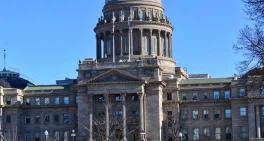Justices rule Muslim men can sue FBI agents over no-fly list
Criminal Law
A unanimous Supreme Court ruled on Thursday that Muslim men who were placed on the government’s no-fly list because they refused to serve as FBI informants can seek to hold federal agents financially liable.
The justices continued a string of decisions friendly to religious interests in holding that the men could sue the agents under the 1993 Religious Freedom Restoration Act for what it calls “appropriate relief.”
“The question here is whether ‘appropriate relief’ includes claims for money damages against Government officials in their individual capacities. We hold that it does,” Justice Clarence Thomas wrote for the court.
The three foreign-born men claim in the lawsuit that their religious convictions led them to rebuff agents who wanted them to inform on people in their Muslim communities. “This is a clear prohibition in the Islamic faith,” Ramzi Kassem, the men’s lawyer, told the justices during arguments in October.
The men claim the agents then placed or kept them on the list of people prevented from flying because they are considered a threat. The men have since been removed from the no-fly list.
A trial court dismissed the suit once their names had been dropped from the list, but they argued that the retaliation they claimed “cost them substantial sums of money: airline tickets wasted and income from job opportunities lost,” Thomas wrote. The federal appeals court in New York agreed with the Muslim men, and the high court affirmed that decision.
There’s no guarantee the men will win their case or collect anything from the agents. Thomas noted that the agents can argue that they should be shielded from any judgment by the doctrine of qualified immunity, which the Supreme Court has said protects officials as long as their actions don’t violate clearly established law or constitutional rights they should have known about.
Lori Windham, senior counsel at the public interest law firm the Becket Fund for Religious Liberty, said governments too often change policies to avoid court judgments. “We’re glad the Supreme Court unanimously emphasized that the government can’t expect to be let off the hook by simply changing its tune at the last second. This is a good decision that makes it easier to hold the government accountable when it violates Americans’ religious liberties,” Windham said.
In recent years, the court has ruled in favor of people and companies asserting claims under the Religious Freedom Restoration Act, or the Constitution’s guarantee of religious liberty.
Related listings
-
Cosby’s sex assault conviction goes before high-level court
Criminal Law 12/01/2020Pennsylvania’s highest court questioned Tuesday whether Bill Cosby’s alleged history of intoxicating and sexually assaulting young women amounted to a signature crime pattern, given studies that show as many as half of all sexual assaults...
-
Judge halts further vote certification; Gov. Wolf appeals
Criminal Law 11/25/2020A Pennsylvania appeals court judge ordered state officials on Wednesday to halt any further steps toward certifying election results, a day after Gov. Tom Wolf said he had certified Democrat Joe Biden as the winner of the presidential election in Pen...
-
Biden win over Trump in Nevada made official by court
Criminal Law 11/24/2020The Nevada Supreme Court made Joe Biden’s win in the state official on Tuesday, approving the state's final canvass of the Nov. 3 election. The unanimous action by the seven nonpartisan justices sends to Democratic Gov. Steve Sisolak results th...



